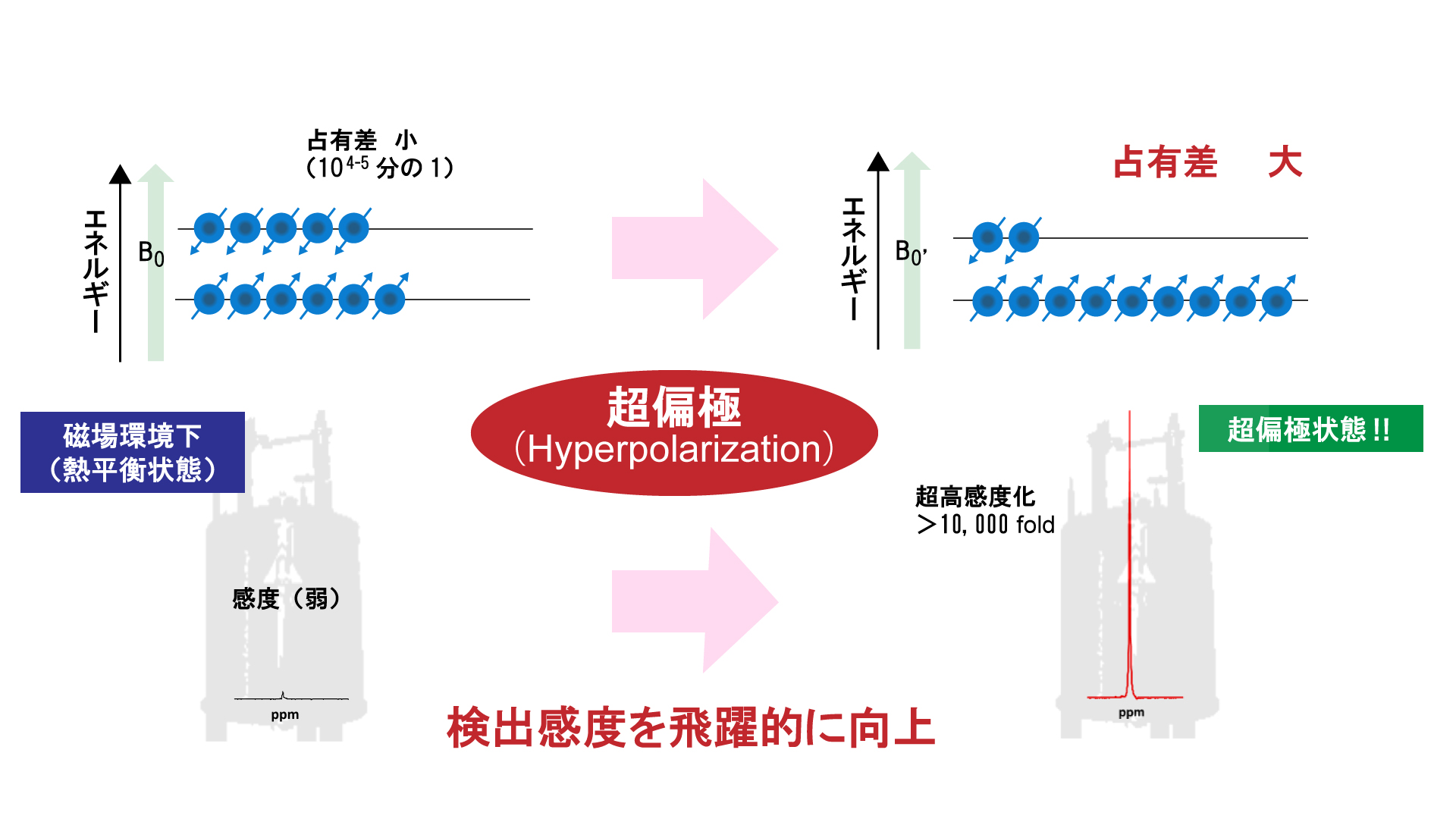

The MRI sensitivity is proportional to the nuclear spin polarization. The hyperpolarization technique enables us to image the metabolism of injected molecular probes and to evaluate cancer therapy. Although the conventional technique requires cryogenic temperature, our room temperature hyperpolarization technique exploits the photoexcited triplet state hyperpolarized independently of the temperature and the magnetic field strength through a quantum process. We are developing a propagable hyperpolarizer at a low cost and with a small size. We are also developing agents of which the lifetime is lengthened by rational molecular design and quantum encoding and their applications for novel diagnosis.

Team Leader, Yoichi Takakusagi
Recent Publication
- Ono M., Kono R., Takado Y. et al. Front Neuroimaging 2025
- Yukawa H., Takakusagi Y., Baba Y. et al. Chem Soc Rev 2025
- Kondo Y., Takakusagi Y., Saito K., Negoro M., Sando S. et al. Sci Adv 2024
- Fukazawa J., Miura N., Negoro M., Kagawa A. et al. J Phys Chem Lett 2024
- Inukai M., Sato S., Miyanishi K., Negoro M. et al. J Am Chem Soc 2024
- Miyanishi K., Negoro M. et al. J Phys Chem Lett 2023
- Sato H., Negoro M., Inukai M. et al. J Phys Chem Lett 2023
- Kagawa A., Kitagawa M., Negoro M. et al. J Magn Reson 2023
- Takakusagi Y., Kobayashi R., Saito K. et al. Metabolites 2023
- Ura T., Hirano Y., Tamada T., Takakusagi Y. et al. Sci Rep 2023
- Saito Y., Yatabe H., Tamura I. et al. Sci Adv 2022
- Kondo Y., Nonaka H., Takakusagi Y., Sando S. Angew Chem Int Ed Engl (Review) 2021
